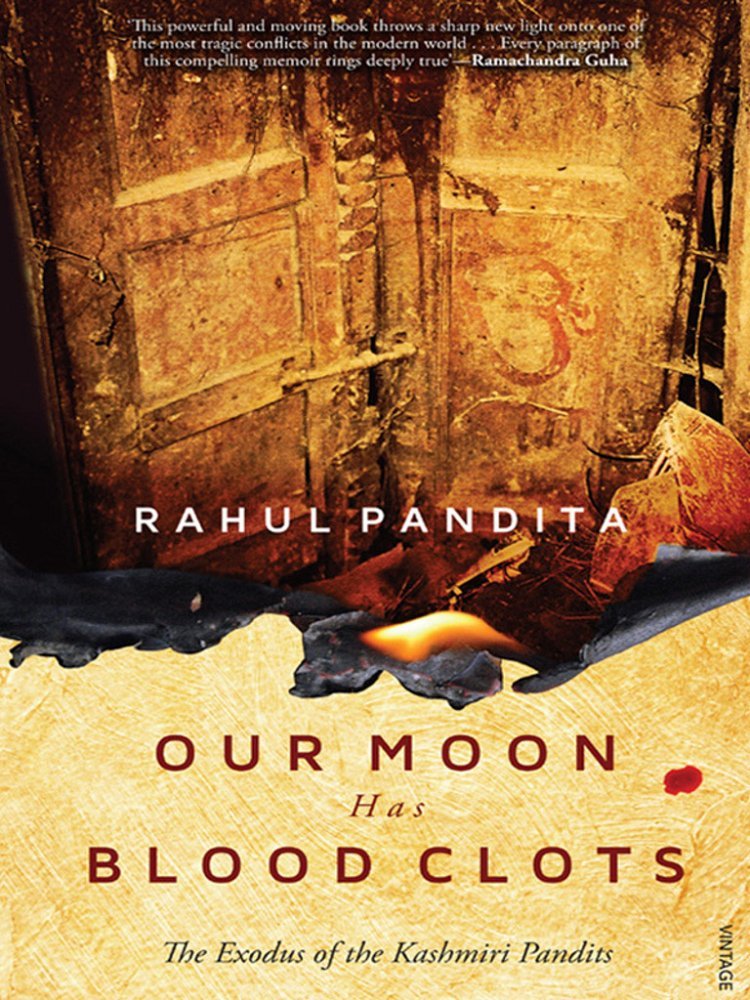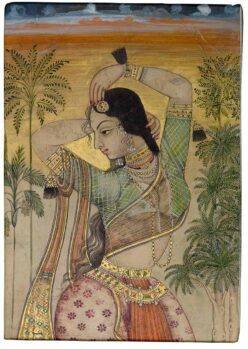
Our moon has blood clots is a gripping biographical tale by journalist Rahul Pandita – which recounts the horrors faced post-1986 Kashmir by the Kashmiri Pandit community at hands of Pakistan aided Islamists. The subtle changes in some Kashmiri attitudes towards the Pandits since the 1980s are brilliantly conveyed through small incidences from the author’s childhood. The book tells the other side of the Kashmir story which has rarely received attention in the global political and even local social circles. The terror emanating nightly from the local mosques jumps out of the pages very effectively. All the killings are from 1989 onwards are told separately and serially which is very impactful in recreating the reign of terror- the pandits must have felt in their ancestral homeland. The Islamist nature of killings is also highlighted (how some pandits were killed with nails hammered to their foreheads). The book also highlights how the silent observers of the valley, who may have not approved the brutalization of Pandits, rarely put up a fight supporting their neighbors. The continuing tragedy of the Pandits at the hands of Jammu residents and negligent central and state government is also narrated from personal and observed experience. The ethnic cleansing of Kashmir in 1947 at hands of Pakistan supported tribesman is also connected to the book narrative through another POV.
The passage where the author narrated his personal journey back to his house leaves the reader in a sad and dazed state. The author’s Hindu culture and heritage are always present in the backstory and hence the pain at the potential loss of Kashmiri pandit culture in the refugees creates a particularly poignant moment in the book. The author’s sufferings, however, aren’t translated into bigotry against Muslims (Kashmiri or non-Kashmiri). The reference to Gujarat 2002 riots (author’s father’s recollections at the lynching of Ehsan Jafri) in the juxtaposition of Pandit anger at suffering is handled with consideration of human rights as the author explained once on television debate. (I have lost my home, not my humanity).
There are few things in the book which could have been handled slightly differently for a better effect IMO. The narrative structure of the book is not perfectly linear – which could’ve been handled differently – but that’s a personal preference and many might view it differently than me. The 1947 story could also be helped a bit by putting it into the larger Partition story of 1947, even though this occurred 2 months after the worst slaughter of 1947. However, these criticisms don’t blunt the impact this book will make on any reader. The book not only makes you feel the pain of the Pandits but also makes you want to work towards preserving the Kashmiri Pandit culture and heritage (especially in the valley). There really is no solution to the Kashmir valley question problem till the Pandits return to their ancestral homeland from where they were brutally driven out.
Post Script:
The only personal connection I have had to the Pandits is because of the Kashmiri Pandit Quota present in Maharashtra Education enacted by the Shivsena BJP government of 1995 on Balasaheb Thackeray’s insistence. Slapstik or anyone else with Kashmiri connections – Could you please add your comments on Pandita’s telling of the story – both in Book and other media. For me, he serves as a Northstar to navigate polarized debates on twitter and social media in general – for example, his coverage of Delhi Riots & 2019 election.

Pandita is quite factual.
Also this is false: “There really is no solution to the Kashmir valley question problem till the Pandits return to their ancestral homeland”.
KPs no longer have a say in Kashmir matters. It is now one of the key line items in the agenda of the Hindu RW politics and its purchase in the general Indian population is so high that even if a CPI govt came to power with full majority next term (fat chance of that!) they won’t / can’t reverse decisions like annulment of Art 370 etc.
I would then change it to – unless the remaining KPs ( there are still some thousands In the valley ?) can stay securely* –
“It is now one of the key line items in the agenda of the Hindu RW politics and its purchase in the general Indian population”
KP may not have any say in Kashmir politics but their voices are getting heard across the country more these days so I implied homegoing.
However are any KP from Jammu /HP seriously going to go back ? Most appear to say No
I think it is probably hard for people who haven’t actually known ethnic cleansing what “home coming” means/entails. It is far easier to throw such tropes around flippantly.
KP culture is a decaying culture and the place we left has changed completely (for much worse). To ask people to rebuild their lives in such a place betrays a total lack of understanding. No KP I know wants to live with Kashmiri Muslims, but wants a partition of the land which any Indian gov will not allow.
BJP government has had an old revanchist agenda with Kashmir. The founder of the Jan Sangh / BJP Shyama Prasad Mukherjee’s died (likely murdered) there way before KP ethnic cleansing. Fixing Kashmir is an old Hindu RW agenda item where KP ethnic cleansing serves as a convenient political talking point. And there will be no negotiation with any internal dissident or foreign government on this topic in all probability.
(Last post on this thread)
I would say that ‘KPs purchase within RW/Indian pops’ is highly exaggerated. Mostly a rhetoric tool to beat back opposition taunts, while no one really cares if KP go back or not. Art 370 removal has little to do with KPs , as Kashmir now is a bilateral issue b/w N-Indian Hindus and Kashmiri muslims, with all other ethnicities out of the picture.
Though the number of times RW uses KPs exodus might give an impression to KPs that its a key issue, much like how the recent SSR death hullabaloo might make SSR fans feel that BJP genuinely wants to solve his case.